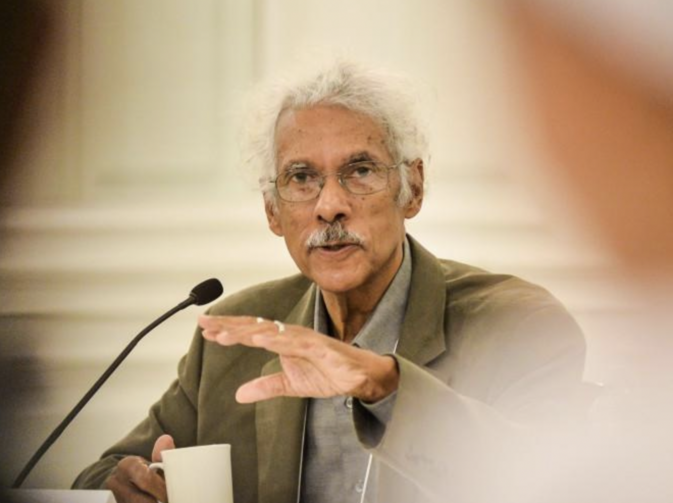A Reflection for Monday of the Eleventh Week in Ordinary Time
Find today’s readings here.
Behold, now is a very acceptable time;
behold, now is the day of salvation. (2 Cor 6:2)
Today, on Juneteenth, the day of emancipation for the men, women and children held in bondage in this country, I am remembering Albert J. Raboteau, a distinguished scholar of African American religion, who died in September 2021.
Professor Raboteau, a man with a brilliant mind and a gentle soul, taught religious history for 30 years at Princeton. Raised Catholic, he became Orthodox later in life. He was educated by the Jesuits at Loyola Marymount in Los Angeles and Marquette University. He did his Ph.D. at Yale, and his dissertation later became the classic text Slave Religion: The “Invisible Institution” in the Antebellum South. It remains in print.
I was fortunate to be one of Professor Raboteau’s students. I took his class on American Catholic history at Princeton and he advised me on my junior paper on Thomas Merton. We remained on friendly terms after graduation, and I would sometimes see him when I returned to campus.
Today I pray with Professor Raboteau, with his ancestors and with all those enslaved men and women who knew today’s words from St. Paul deep in their bones.
As it turns out, Professor Raboteau wrote for America. The final line in his obituary quotes an essay he wrote for the magazine in 1995. The story of Black Christians, he argued, “contradicted the proposition that America is the story of the gradual expansion of freedom and opportunity to a wider and wider group of people. The moral claim laid upon us by their ancestors’ insistent voices is continual awareness that racial inequity was interwoven into the fabric of our society from the start.”
Professor Raboteau was deeply familiar with the racial inequalities in American society. Three months before he was born in Bay St. Louis, Miss., his father was shot and killed by a white man. There were no witnesses, so no charges were brought.
He lived the rest of his life with an intimate sense of the “sorrows here below.” The quote comes from the words of a former slave speaking just after emancipation. Here is the full passage, which Professor Raboteau cited in a May 21, 1994, essay for America:
The old meeting house caught on fire. The spirit was there. Every heart was beating in unison as we turned our minds to God to tell him of our sorrows here below. God saw our need and came to us. I used to wonder what made people shout, but now I don’t. There is a joy on the inside, and it wells up so strong that we can’t keep still. It is fire in the bones. Any time fire touches a man, he will jump.
“Over the years,” Professor Raboteau wrote, “the image of ‘fire in the bones’ stuck in my memory and eventually became for me a metaphor of the distinctive character of African-American Christianity, a mood of joyful sorrow, sorrowful joy, or more accurately, sorrow merging into joy. Something about this mood resonated within me, stirring memories of forgotten ancestors whose stories I needed to learn, important not only for myself, but for others as well.”
Today I pray with Professor Raboteau, with his ancestors and with all those enslaved men and women who knew today’s words from St. Paul deep in their bones:
We are treated as deceivers and yet are truthful;
as unrecognized and yet acknowledged;
as dying and behold we live;
as chastised and yet not put to death;
as sorrowful yet always rejoicing;
as poor yet enriching many;
as having nothing and yet possessing all things.








